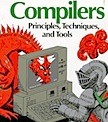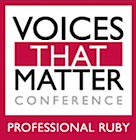 Back in March 2008, Vidar Hokstad – a London based Norwegian developer – began to write a series of blog posts on writing a compiler in Ruby from the ground up. Early on, I took objection to some elements of his approach, but it still stands as a great series of posts. Vidar recently reached post 11, providing enough of a landmark to introduce the series as a whole (which is already scheduled to go up to at least 20 posts).
Back in March 2008, Vidar Hokstad – a London based Norwegian developer – began to write a series of blog posts on writing a compiler in Ruby from the ground up. Early on, I took objection to some elements of his approach, but it still stands as a great series of posts. Vidar recently reached post 11, providing enough of a landmark to introduce the series as a whole (which is already scheduled to go up to at least 20 posts).
It’s worth noting that there are many different approaches to writing compilers of all types – so don’t take the series as a definitive way to develop a compiler. Read More


 Garry Dolley has developed
Garry Dolley has developed 





